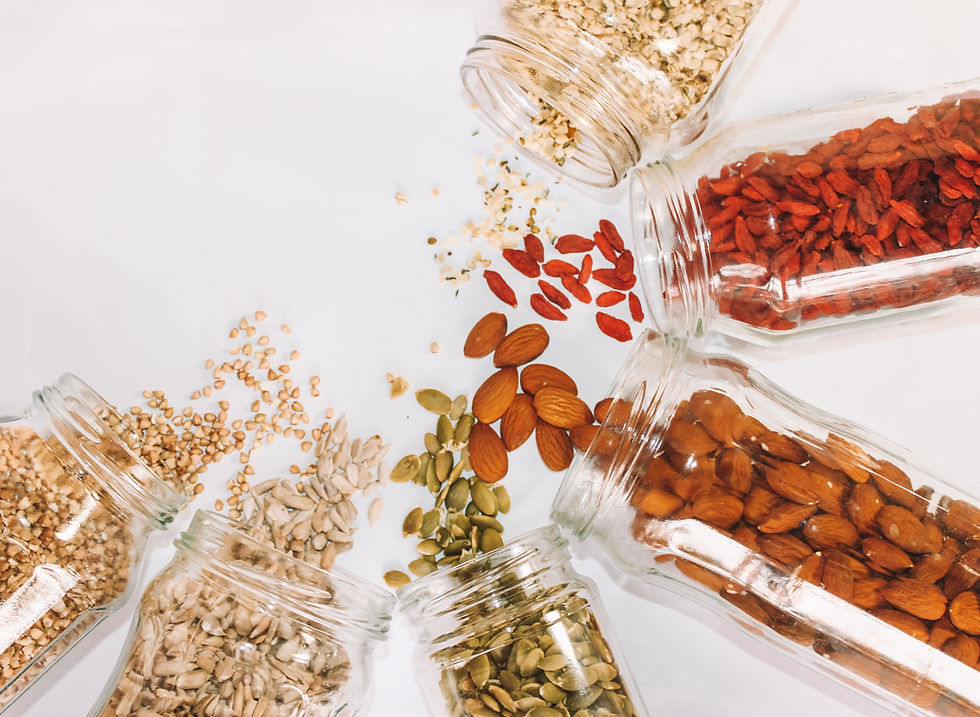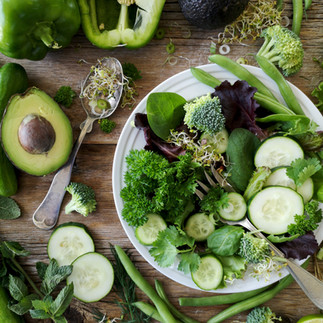10 foods to improve your heart health.
- Dtn Samuel Akapo

- Mar 7, 2023
- 5 min read
Food nutrients are a major contributor to the efficiency of the body and all of its organs. The type of food we eat will determine whether to enhance the body's organ functions or reduce them.

The heart is an engine-like organ of the body. It is constantly working round the clock to supply food nutrients, oxygen and other chemical substances throughout the body. It is a very important organ that we cannot afford to take with levity. The heart is made up of chambers formed by muscles and valves, beautifully designed for the sole purpose of pumping blood in and out of itself.
The heart functions by constantly receiving and supplying blood to and from every part of the body. Hence, any obstruction in this process at any time weakens and in the long run destroys the delicate organ. We should be all out to ensure that the heart is not hindered in its role. Heart diseases are grouped under the umbrella called cardiovascular diseases (CVD).
For perspective, here are some recent stats.
Cardiovascular diseases (CVDs) are the leading cause of death globally, taking an estimated 17.9 million lives each year, as stated by the World Health Organisation. This accounts for 32% of global death causes. Over three-quarters of the death caused by cardiovascular diseases (CVD ) are seen in low- and middle-income countries. This interprets that everyone is at risk. Africans are a major contributor to this global burden.
According to another recent statistical report by the CDC, in the United States, someone has a heart attack every 40 seconds. Every year, about 805,000 people in the United States have a heart attack. Of these, 605,000 are a first heart attack.
These numbers are wild and should be taken seriously. This is why I want to share with you helpful ways to eat so as not to be a part of these sad statistics as you grow older. The heart ought to be cared for and looked after with utmost caution.
With adequate healthy nutrition and lifestyle practices you can prevent the onset of cardiovascular diseases or reverse it if you are already at risk or have had a heart disease episode.
Here are 10 foods you should be eating daily to enhance the efficiency of your heart.
1. Oats
Oats are a member of the family of grains. They are rich in fibre, glycans and amino acids that are responsible for ensuring the improved flow of blood from and to the heart by removing residual fats from all the blood vessel walls. They contain soluble fibres and are also able to sustain energy longer. Oats support heart health.

2. Fruits
Fruits and vegetables are chiefly rich in vitamins, fibre, minerals and amino acids in their most accessible and absorbable form. These fruits of various colours and categories are highly rich in vitamins C, E, K, and A, which are very significant in maintaining a healthy heart. All whole fruits are allowed except if you are allergic to anyone. Grapes, avocados, olives, soursops, papaya, tomato and others stand out in this category at all times. Three to five fruit servings are recommended daily. Eat varieties. Eat the rainbow colours.

3. Legumes
If you are really interested in taking proactive measures, then, legumes of all types are also some top go-to foods. The best available scientific study suggests that you can minimize
the risk of cardiovascular diseases by eating a minimum of 25 grams a day of soluble fibre (which is typically found in all legumes). Legumes include beans, lentils, soybeans, chickpeas, navy beans, fava beans, etc.

4. Cruciferous vegetables
They include cabbage, kale, cauliflower, Brussels sprouts, and broccoli. They are excellently rich in fibre, water, and sulforaphane which are highly beneficial for the body's wholesome wellness. Having up to 3 servings daily is considered ideal.

5. Green vegetables
Filling your soups with green vegetables is one of the easiest ways to get in this nutrient-dense food into the body in a very absorbable form and with less nutrient loss. Green vegetables are best cooked under low heat and eaten hot in soups. They contain high levels of fibre, vitamins and minerals.
6. Spices and herbs
Spices are also very sought after for their abundant vitamins and mineral contents. They are a rich source of healing nutrients and aroma that not only raise our food flavours but also increase its nutritional value. They are rich in many water-soluble vitamins like vitamins C, K, etc. Some of them are cloves, turmeric, cinnamon, garlic, ginger, basil, rosemary, saffron, onions, cumin seed, etc. Incorporate them into your dishes always.

7. Berries
Berries are highly rich in soluble fibre and antioxidant properties which have been put to the test to see their effect on heart health. Berries of all colours are excellent for your heart health due to their abundant flavonoid content and antioxidant properties. Blueberries are top but not ultimate in this category. Always enjoy a variety of fruits. Between 3 to 5 servings are also recommended daily.

8. Seeds and nuts.
Flaxseeds are rich sources of fibre, antioxidants, and lignans. Flaxseeds may average one hundred times more lignans than other foods like grains and seeds. Lignans also prevent cancerous cell growth. Other seeds include chia seeds, sesame seeds, sunflower seeds, mustard, pumpkin seeds and so on. Brazil nuts have been found to improve blood cholesterol levels by lowering LDL (bad cholesterol) levels which in turn improves the efficiency of the heart and body. other nuts like walnuts, almonds, hazel nuts and cashew nuts, also contain vitamin E, folate, and Omega-3 fatty acids which also improve heart and brain health.

9. Potatoes and yams
Potatoes and yams family are rich sources of calcium, iron, energy, and vitamin C which are equally beneficial to the heart and the whole body system.

10. Whole grains
Whole grains are a powerful group of plant foods that supply very significant nutrients to the body along with their high energy. They are rich in insoluble fibre, folate, magnesium, manganese, iron, and so on. at least up to 50 grams of insoluble fibre are recommended daily.

Conclusion
Given the right conditions, the body heals itself. But we barely take in adequate nutrition responsible for aiding the body's repair. Having whole plant foods which include grains, legumes, seeds and nuts, fruits and vegetables will help to keep the heart healthy and efficient.
Fortunately, what is good for your heart is good for healing every part of your body. Hence, you will be doing the whole body greater good when you eat these foods frequently.
The most important behavioural risk factors for heart disease are an unhealthy diet, physical inactivity, tobacco use and consumption of alcohol. The effects of these behavioural risk factors may show up in some individuals as raised blood pressure, raised blood glucose, raised blood lipids, and overweight and obesity. Always make sure that you have all of these in check and within recommended ranges.










Comments